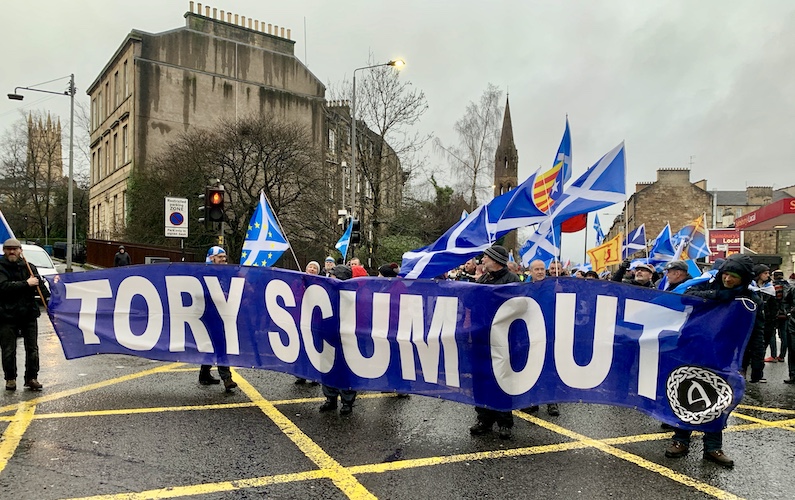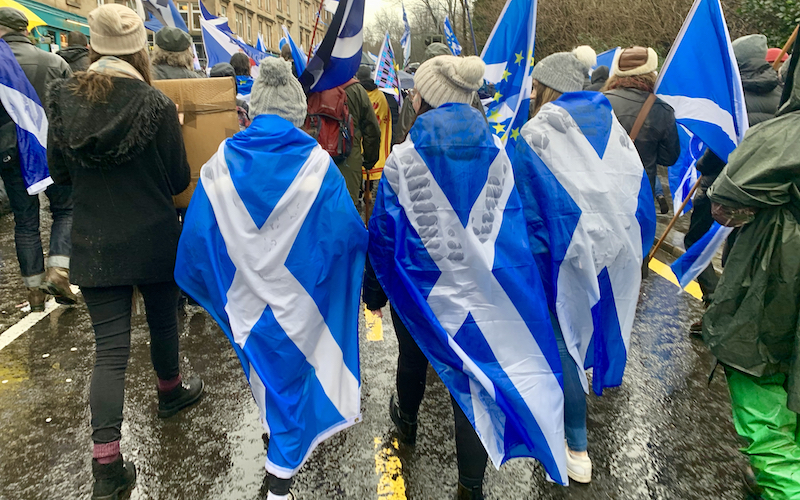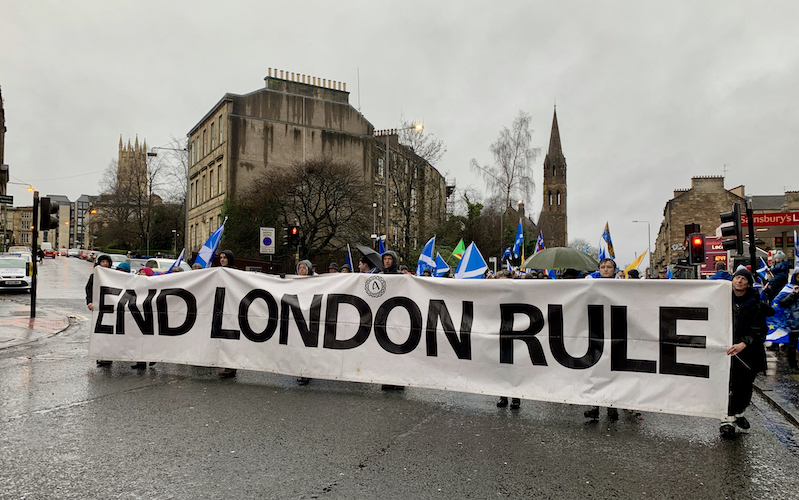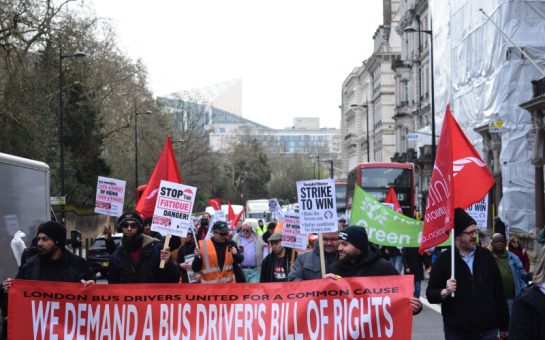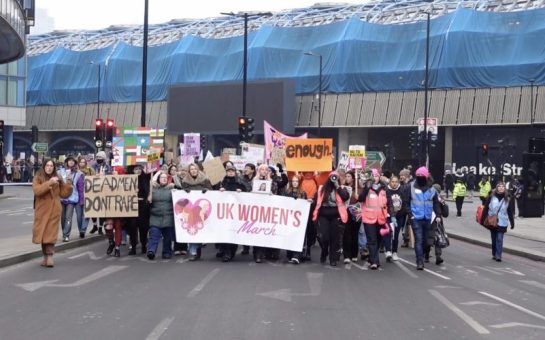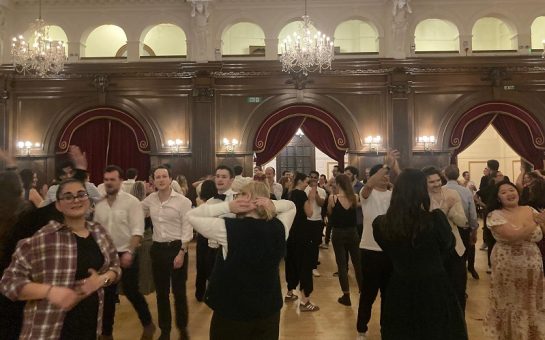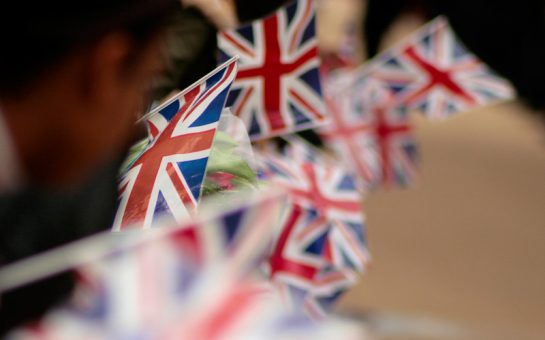![]() By Catriona Graffius
By Catriona Graffius
January 21, 11:37
Follow @SW_Londoner
An estimated 80,000 people braved wind and rain to march for a second Scottish independence referendum in Glasgow on Saturday January 11.
The demonstrators assembled with saltires, banners and bagpipes at Kelvin Way at 10:30am before processing through the city to Glasgow Green.
Scottish Independence pressure group All Under One Banner (AUOB) called the rally as an ‘emergency’ response to December’s general election Conservative win.
AUOB representative Andrew Wilson said: “There was an immediate groundswell of support for another referendum after the general election in December.
“Scotland has got a government it didn’t vote for. It makes this event even more of an emergency.”
The pro-independence SNP party won 48 seats in December’s election.
The Conservatives, despite gaining an 80-seat overall majority, won only six of Scotland’s 59 constituencies.
Cap in Hand
The atmosphere of the march was mixed.
Some Scots sang cheerfully along to The Proclaimer’s 1988 pro-independence song ‘Cap in Hand’.
They chanted the chorus: “I can’t understand why we let someone else rule our land.”
Others carried banners with ‘Tory Scum’ painted on them, shouting: “Tory, tory, tory: out, out, out.”
Glasgow University students Lucy Miller, 21, and Maili Raven-Adams, 21, began supporting Scottish independence after the 2016 EU referendum.
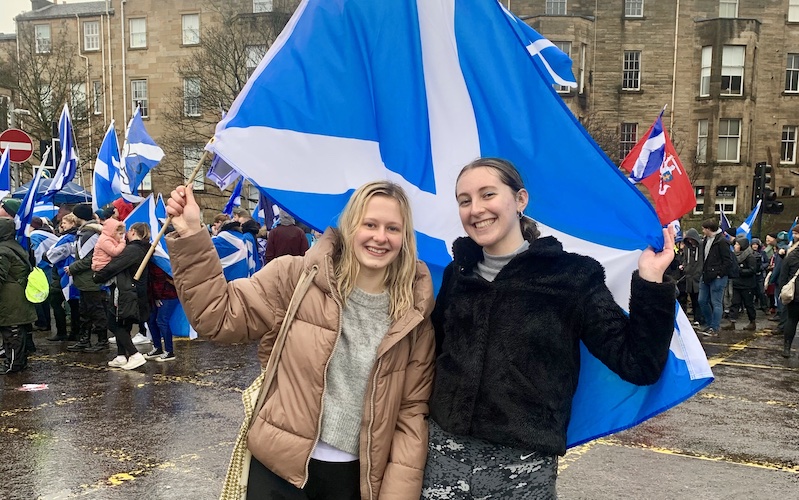
“Scotland didn’t vote for Brexit and we didn’t vote for the tories,” said Miss Miller.
“Our opinions aren’t represented in Westminster. England is going in a completely different direction.”
AUOB steward Samantha Cummings, 31, joined the march wrapped in the royal banner of Scotland and wearing a bright red kilt and tammy hat.
Ms Cummings believes MSPs are not given enough respect in Westminster.
She said: “The way Scottish MPs are treated is an absolute joke.
“They get heckled, booed down, that’s bullying and harassment.
“After independence we’ll have control of our own money. We don’t support funding the tory champagne.”
Pro-Union Presence
However, not all those at Saturday’s event supported independence.
A cluster of demonstrators waved Union Jacks in support of the union between Scotland and the rest of the UK.
One demonstrator with a Union Jack flag, who did not wish to be named, said: “We’re more pro-union than anti-independence but on a day like today, all we could gather was fifty people.”
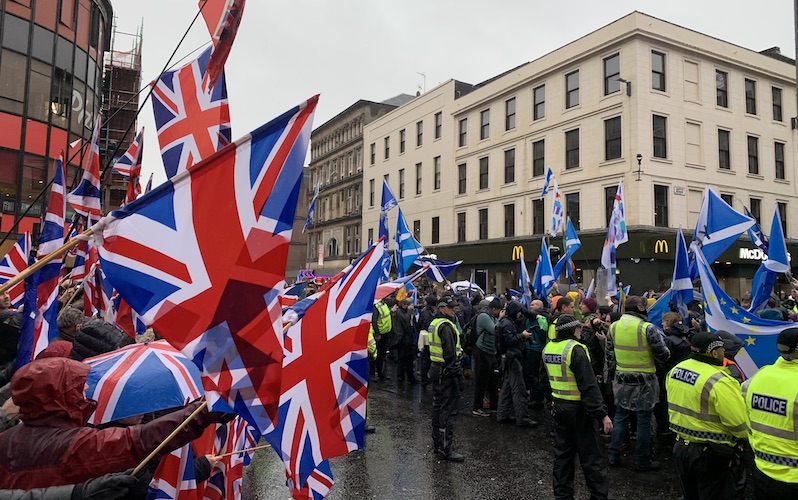
At the end of the march, pro-independence speakers gathered at the West Brewery on Glasgow Green.
Representatives from AUOB, the Scottish Independence Convention, and Plaid Cymru spoke.
Speaking after the rally, former British diplomat Craig Murray claimed an independent Scotland would survive financially.
“I always found it astonishing that there’s this idea that Scotland can’t survive as a country when comparable countries are extremely successful,” he said.
“The idea that there’s something unusually pathetic about Scotland is a nonsense.
“Scotland was an independent country for about 800 years. It’s only been in the union for about 300 years since then.”
Scottish Afghan Party representative Mohammed Asif arrived in Scotland as a refugee from Afghanistan.
He said: “The best part of today was the disabled people marching in the front in the rain.
“The Scottish people have the right to choose their own destiny. I really salute them.”
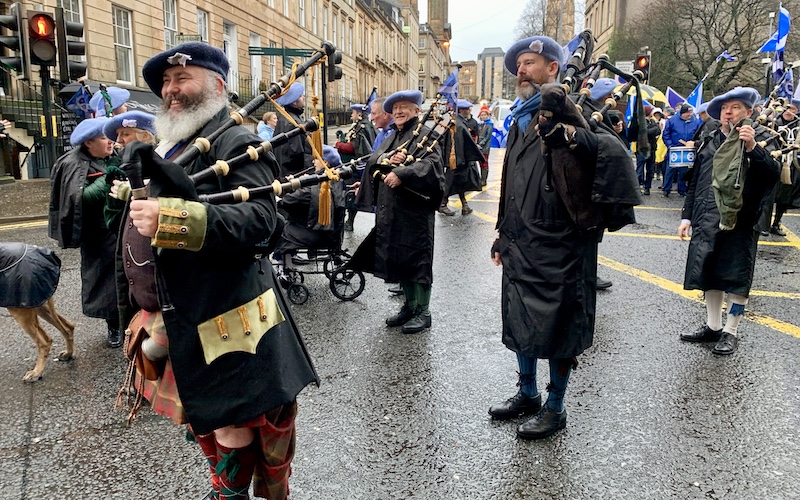
Poltical Stagnation or Political Freedom?
All Under One Banner organised 22 marches between 2014 and 2019.
Scotland voted 55.3% ‘no’ to the question ‘should Scotland be an independent country’ in the 2014 referendum.
However, Glasgow voted for an independent Scotland with 53.49% in favour of leaving the UK.
Since 2014, pro-independence voices accused Westminster of breaking the promises surrounding the referendum and believe the country should vote again.
However, Boris Johnson officially replied to SNP leader Nicolas Sturgeon this week.
The Prime Minister refused to hold another Scottish independence referendum this year.
In a letter to Scotland’s first minister, Mr Johnson said: “Another independence referendum would continue the political stagnation that Scotland has seen for the last decade, with Scottish schools, hospitals and jobs again left behind because of a campaign to separate the UK.
“It is time that we all worked to bring the whole of the United Kingdom together and unleash the potential of this great country.”
